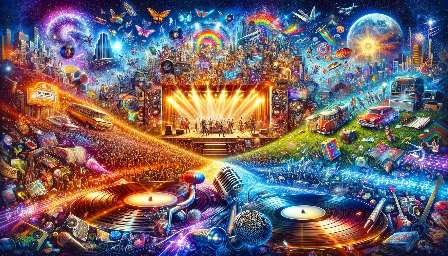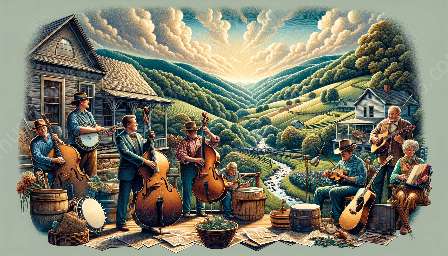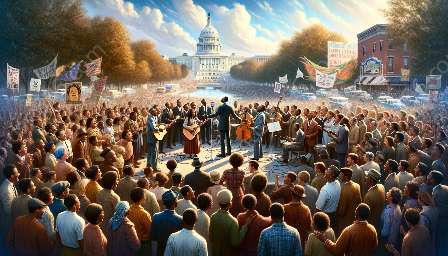Disco music emerged in the 1970s and became a cultural phenomenon, reflecting and influencing social movements and cultural shifts of the time. This topic cluster delves into the intersection of disco music with various social and cultural movements, providing a comprehensive understanding of its impact on society and history.
History of Disco Music
Disco music, originating from the underground club scenes in New York City, Chicago, and Philadelphia, rose to prominence in the mid-1970s. It marked a departure from the rock-dominated music landscape of the previous decade, with its lively beats, catchy melodies, and emphasis on danceability. With its origins in marginalized communities, disco represented freedom, diversity, and self-expression.
The Disco Era and Its Influence
Disco music went hand in hand with various social and cultural movements of the time, reflecting and amplifying their messages. The following are some of the key movements and phenomena aligned with the rise of disco music:
1. LGBTQ+ Rights and Liberation
Disco culture provided a safe space for the LGBTQ+ community, many of whom faced discrimination and persecution. Nightclubs such as Studio 54 in New York City and The Warehouse in Chicago became iconic hubs for the expression of sexual freedom and gender diversity. The inclusive nature of disco music and its venues contributed to the burgeoning LGBTQ+ rights movement, becoming an anthem for liberation and empowerment.
2. Civil Rights and Racial Equality
At its core, disco music celebrated inclusivity and diversity, resonating with the ongoing fight for civil rights and racial equality. Artists like Donna Summer, Gloria Gaynor, and The O'Jays, among others, broke racial barriers and became influential figures in the industry. Disco clubs became melting pots where people of all backgrounds could come together and dance without prejudice, fostering a sense of unity and solidarity.
3. Feminism and Women's Empowerment
Disco's embrace of female artists and their empowerment through music was a vital part of the feminist movement. Icons such as Diana Ross, Donna Summer, and Grace Jones used disco as a platform to assert their independence and challenge gender norms. The lyrics and themes of disco songs often conveyed messages of confidence, liberation, and female empowerment, resonating with the broader feminist movement of the era.
4. Urban Culture and Nightlife
Disco music was inseparable from the urban culture and nightlife of the 1970s. It provided an escape and a sense of belonging for people living in urban areas, where the club scene and dance floors became spaces for self-expression and communal celebration. This urban connection influenced fashion, dance styles, and the overall aesthetic of the disco era, leaving a lasting impact on popular culture.
5. Anti-War and Activism
During the Vietnam War era, disco music offered an outlet for escapism and solidarity. It served as a counterpoint to the political turmoil of the time, giving people a reprieve from the harsh realities of war and social unrest. Some disco songs carried themes of peace, love, and unity, aligning with the anti-war sentiment of the period.
Legacy and Evolution
While the peak of disco music faded by the end of the 1970s, its influence continued to permeate music and culture in the years that followed. Elements of disco can be found in genres ranging from dance-pop to electronic music, and its impact on social movements and cultural shifts remains a significant part of its legacy.
The rise of disco music was intertwined with the rise of social movements and cultural evolution, creating a dynamic and influential era in history. The enduring legacy of disco music serves as a testament to its lasting impact on society and culture.




































